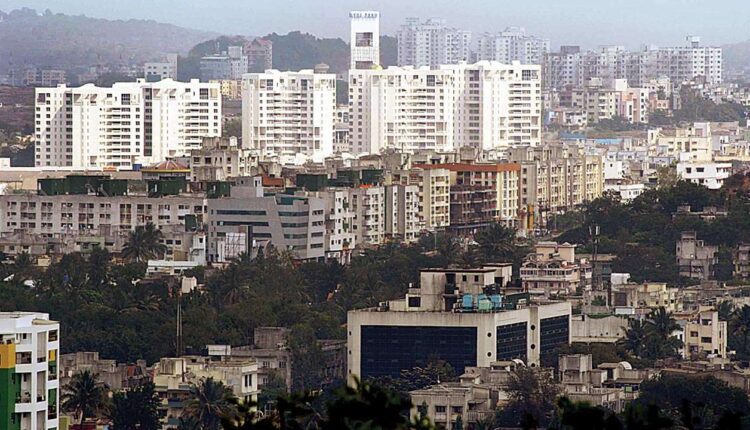From April 1, PCMC to start ‘policing’ Garbage Vulnerable Points to stop dumping of non-segregated waste
While it had stayed its own decision to not collect wet waste from big residential housing societies, the Pimpri-Chinchwad Municipal Corporation (PCMC) has now decided to start “policing” Garbage Vulnerable Points or GVPs in a bid to ensure that dry and wet waste are not mixed and dumped indiscriminately. The “policing” of the GVPs will start from April 1, civic officials said.
Deputy Municipal Commissioner Ajay Charthankar said as per their survey, there are more than 150 Garbage Vulnerable Points spread across the length and breadth of the city. “These GVPs are in the vicinity of chawls, slums or ‘bhaithi’ houses in Gaonthan area and even industrial areas. These GVPs have come up in areas from where we removed our garbage containers. It was noticed that people of these areas do not segregate their dry and wet waste. They wrap it up in a plastic bag or a piece of paper and fling the waste at these GVPs,” he said.
GVPs are nothing but a small piece of open land where garbage of all kinds is dumped every day. These GVPs are mostly located in busy residential areas, officials said. “We have already achieved major success on the non-segregated garbage front. However, there are still some areas where non-segregated garbage continues to be dumped,” said Charthankar.
Officials said they have tried to reduce the GVPs by adopting different methods. “For instance, we clear up GVPs and then draw rangolis or pots carrying plants. But this has failed to work as people shift their GVPs elsewhere,” the PCMC administration said.
The PCMC administration argues that non-segregated waste is posing a serious problem for them. “If waste is not segregated, the process of converting them into compost, fuel or recycling becomes an arduous task; It is beyond our capacity,” Charthankar said.
Analysing the reason as to why the GVPs spring up, Charthankar said, “We found out that if our vehicles that collect garbage house-to-house do not reach the doorsteps of the residents in time or skip their rounds, people resort to indiscriminate dumping of garbage. People, especially those rushing to their offices, have no patience. As a result, we have strengthened our network of door-to-door collection of garbage. Through the Integrated Command and Control Centre, we are keeping track of each vehicle that moves through residential areas to collect trash. We have ensured that we cover each area. We have around 600 vehicles on the job. Of these, 350 are ‘ghanta gadis.’”
Despite PCMC’s door to door collection, officials said that the GVPs still exist. “And therefore we have decided to start policing the GVPs and fine those indulging in throwing their non-segregated garbage at these points. We will not be able to keep an eye round-the-clock but we will ensure that it is done for the better part of the day so that a strong message goes to the people,” he said.
Clarifying that this decision was not related to the one regarding non-lifting of wet waste from big residential societies, Charthankar said, “In residential societies with a large number of flats, the system of segregating wet and dry garbage is already in place. Our earlier order that we will not be lifting the wet waste of bigger housing societies was aimed at ensuring that wet waste is processed by the societies themselves. That order which was supposed to take effect from April 1 has been stayed and the stay continues till a solution is found.”
Sanjeevan Sangale, who heads the Chikhli, Moshi, Pimpri-Chinchwad Housing Society Federation, said, “PCMC’s latest order has nothing to do with housing societies which are already segregating their dry and wet waste. The PCMC is lifting our wet waste as well. It is charging Rs 60 per flat to lift the garbage. A committee has been set up to take a call regarding the wet waste which the PCMC wants us to process at our end, citing the Solid Waste Management Rules of the central government. However, the state government has promised us that they will find a solution to this problem. The government is thinking of amending the Development Control Rules.”


